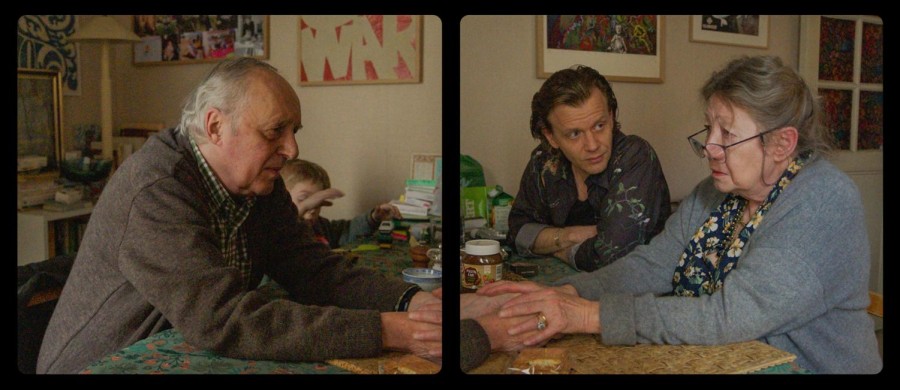Review: ‘Vortex’, a reminder that death is destiny
Gaspar Noé’s latest, “Vortex,” offers a simple, albeit heavy, meditation on death. “Vortex” opens in select theaters this weekend.
“Vortex” (2021) is the latest feature by French-Argentinian filmmaker Gaspar Noé exploring the materiality of life and death. (Image Courtesy of © 2021 Rectangle Productions – Wild Bunch International – Les Cinemas de la Zone – KNM – Artemis Prodpuctions– Srab Films – Les Films Velvet – Kallouche Cinema)
April 29, 2022
“Vortex,” the latest film from Paris-based Argentinian provocateur Gaspar Noé, is a poignant reflection on the material insignificance of dying. As is to be expected from the director who has made a name for himself with anxiety-inducing movies — feel free to see “Irréversible,” “Enter the Void” or “Climax” if you want your head spun and soul sucked — “Vortex” is a hard watch. But for those willing to experience zenithal heights of misery in movie-going, a life-altering, affective experience awaits them by the end of the film’s 142-minute runtime.
Shot in split-screen, “Vortex” concerns itself with the dying days of an elderly couple credited as “The Father” and “The Mother,” played by legendary giallo genre director Dario Argento and French New Wave cinema icon Françoise Lebrun. The film flickers throughout its runtime, inviting emptiness to take command of one side of the screen or another for milliseconds at a time, cleverly foreshadowing the inevitable deaths to come and spotlighting the fact that humanity’s genetically predetermined disintegration works like Russian roulette.
Similar to Noé’s other works, there’s gimmickry involved — the aforementioned flickers, actors as cinematic references and the use of split-screen. However, dismissing such a monumental achievement in filmmaking for a few gimmicky experimental techniques would ignore the fact that cinema started off as, and continues to act like, a circus.
Much like circusgoers, moviegoers gather around cinema to experience spectacle — rather than live, we indulge in performances of life. It’s a tradition as old as ancient Greek theater, or perhaps older, that we often prefer a representation of life over life itself. Entertaining a flickering reality is easier than accepting that your own reality is flickering.
At face value, Noé’s latest is a simple story made unnecessarily complex through the filter of auteurism. For astute eyes that can cut past such elementary critical claims lies something far scarier and smarter — a film that embraces its true nature as spectacle. In acknowledging its inherent performativity, “Vortex” understands it is a fading amusement that dies alongside its aging characters in front of the audience.
Noé has crafted a film that renounces all things transcendent. In an interview promoting the film, he stated that death is “the objects of a life you leave to others and that disappear in a garbage truck as quickly as memories that rot along with the brain.” It is evident that Noé has a completely material way of looking at life, a viewpoint that is reinforced through several piercing scenes.
Nowhere is this clearer than one moment in which The Mother’s attempt to flush pills down the toilet is juxtaposed via split-screen with her grieving son smoking heroin. The dismal diptych poetically and cheekily encapsulates the phrase “a life down the drain.”
Near the end of the film, Noé doubles down on his argument that life is a material un-event. During The Mother’s funeral, her son (Alex Lutz) stands up to present a slideshow of images he has put together to commemorate her life. The camera zooms in on a shoddy Panasonic television. One by one, unflattering photographs flash across the screen, attempting to memorialize a forgettable life. Cutting back to the congregation, the gathered mourners are clearly uninterested in this poorly conceived tribute to The Mother. Despite the emotive gesture on behalf of her son, her life comes off as no more than a string of insignificant moments. Through his images, Noé displays life as mere moments and collected objects destined to be forgotten or thrown away.
Through its emphasis on the material waste that makes up spectacles and people, “Vortex” points out how our very lives are composed of theatrics. The film is a mirror for audiences to reflect upon their own looming finality, a chance for them to decide to live. The spectacle of life is only as entertaining as you make it — at the end of the day, the circus tent will come crashing down whether or not you’re still standing.
Contact Nicolas Pedrero-Setzer at [email protected].

























































































































































